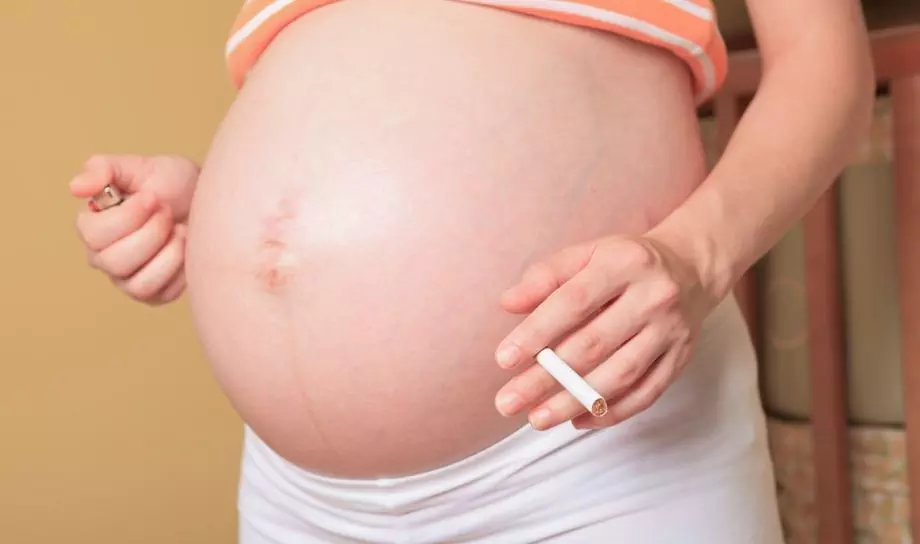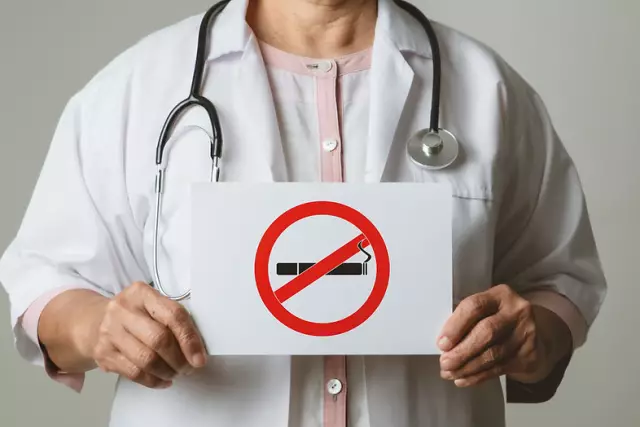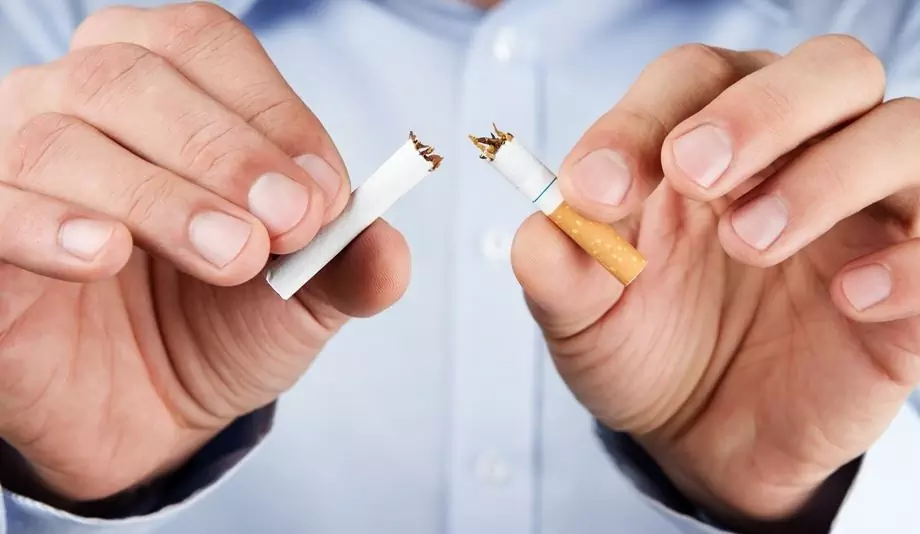- Author Rachel Wainwright [email protected].
- Public 2023-12-15 07:39.
- Last modified 2025-11-02 20:14.
Pregnancy and smoking
It is clear to everyone that smoking and pregnancy are two incompatible concepts. Unfortunately, smoking during pregnancy is a pressing problem for many women and not all of them understand the risk to their unborn child. But the harm from this habit can have an impact not only on the unborn child, but also interfere with the very process of conception.

Let's take a closer look at the risks of smoking in a mother before pregnancy and how smoking affects pregnancy.
Pregnancy and smoking. Smoking before conception
Smoking is one of the causes of infertility. Scientists have shown that eggs die more often in a woman who smokes, and this happens under the negative influence of polycyclic aromatic hydrocarbons, which enter the body along with tobacco smoke. Thus, smoking reduces the likelihood of conception by about half (depending on the woman's smoking history).
By the way, quite often women who smoke have menstrual irregularities, respectively, ovulation occurs less often, but menopause - earlier.
Smoking negatively affects not only the health of women, but also the health of men. After all, the quality of sperm in men who smoke is worse than that of non-smokers. It contains a much lower number of viable sperm. Anyway, smoking men often suffer from impotence. What can we say about the health of future offspring …
Pregnancy and smoking. Smoking in early pregnancy
If a woman does not plan pregnancy, and does not stop smoking during this period, and also does not follow her menstrual cycle too much, then she may not immediately notice that she is pregnant. What does smoking threaten an unborn child in early pregnancy? As you know, the first weeks of pregnancy are the most important and dangerous in terms of the development of all kinds of complications and intrauterine pathologies. Even the usual climate change can provoke abortion or fetal freezing, what can we say about pregnancy and smoking, especially if a woman smokes more than five cigarettes a day.
Especially great harm can be caused to an unborn child if a woman has a long smoking history and is over 35 years old. At this age and without smoking, the risk of having a full-fledged and healthy child decreases. But smoking and pregnancy at this age is a very, very dangerous combination, because bearing a child involves an increased load on the cardiovascular system, and in a woman who smokes it is weakened. This leads to a constant exacerbation of chronic diseases and the emergence of new ones.
It is important to know that after each smoked cigarette, the vessels remain in a compressed state for a while, and at this time the child receives an insufficient amount of oxygen and nutrients, which in the early stages can even cause the death of the child.
In the later stages, chronic fetal hypoxia (lack of oxygen) often causes the development of various diseases. It has already been scientifically proven that pregnancy and smoking often cause the birth of babies with such congenital physical defects as a cleft lip, cleft palate, etc. Often such malformations are explained precisely by a lack of oxygen during intrauterine development.
Late pregnancy and smoking
Smoking more than five cigarettes a day during pregnancy provokes such a very dangerous complication as placental abruption. With placental abruption in a pregnant woman, heavy bleeding begins, which can only be stopped by surgery. In late pregnancy, doctors often resort to an emergency caesarean section, as a result of which the child can be saved. But often such children remain disabled for life, since placental abruption causes acute hypoxia in the fetus.
The combination of "smoking and pregnancy" provokes an exacerbation of hypertension and often becomes the cause of preeclampsia (late toxicosis of pregnant women). This condition requires timely treatment, otherwise it threatens the health of the mother and the unborn child.
Smoking during pregnancy often causes a woman to be unable to bear a baby before the due date. Thus, pregnancy and smoking are a dangerous combination, in which a woman often has premature birth. It's also good if you manage to bring the child to such a time when he can survive. And if not? Is it worth the risk? Yes, and probably not worth talking about the difficulties of caring for premature babies, as well as what health problems they subsequently have.
In women who smoke, dystrophic changes are often observed in the placenta resulting from the negative effects of harmful substances contained in tobacco. And a poorly functioning placenta cannot fully supply the child with all the nutrients and oxygen he needs. That is why, according to statistics, children of women who smoke, as a rule, are born with less weight than non-smokers.
In especially severe cases, stillborn babies are born, even in late pregnancy. And smoking plays an important role here. In combination with other adverse factors such as infectious diseases and alcohol, smoking is one of the main causes of intrauterine fetal death.
Pregnancy and smoking. What happens after birth?
We've found out how smoking affects pregnancy. But what about figuring out what happens to babies, into whose blood harmful substances have entered throughout the entire period of pregnancy? Such children have a rather high risk of contracting various lung diseases (pneumonia, asthma, bronchitis). If, after birth, the child continues to inhale tobacco smoke, this risk increases several times.
Surely, every woman knows what a sudden infant death is and is afraid of it. This is when, for some unknown reason, the baby's heart stops beating. The exact causes of this phenomenon are unknown, but according to several tests, such a dangerous combination as pregnancy and smoking is not the last place.
Pregnancy and smoking: to quit or not?
After we figured out how smoking affects early and late pregnancy, as well as the health of the child after birth, it is necessary to decide whether you wish your unborn child a similar fate? But now, at every corner, they say that a sharp throw is also harmful for the unborn child? Yes, unfortunately it is true. If the mother smokes a lot, then you should not quit abruptly, as this is fraught with severe stress for the mother, which, of course, will not have a positive effect on the fetus. But, nevertheless, it is necessary to quit, you just need to do it gradually. You just have to remember that nicotine addiction disappears very quickly - just a few days is enough. With the psychological, of course, it will be much more difficult to cope, but you must agree that your stimulus is not weak - the health of your unborn child.
Found a mistake in the text? Select it and press Ctrl + Enter.






